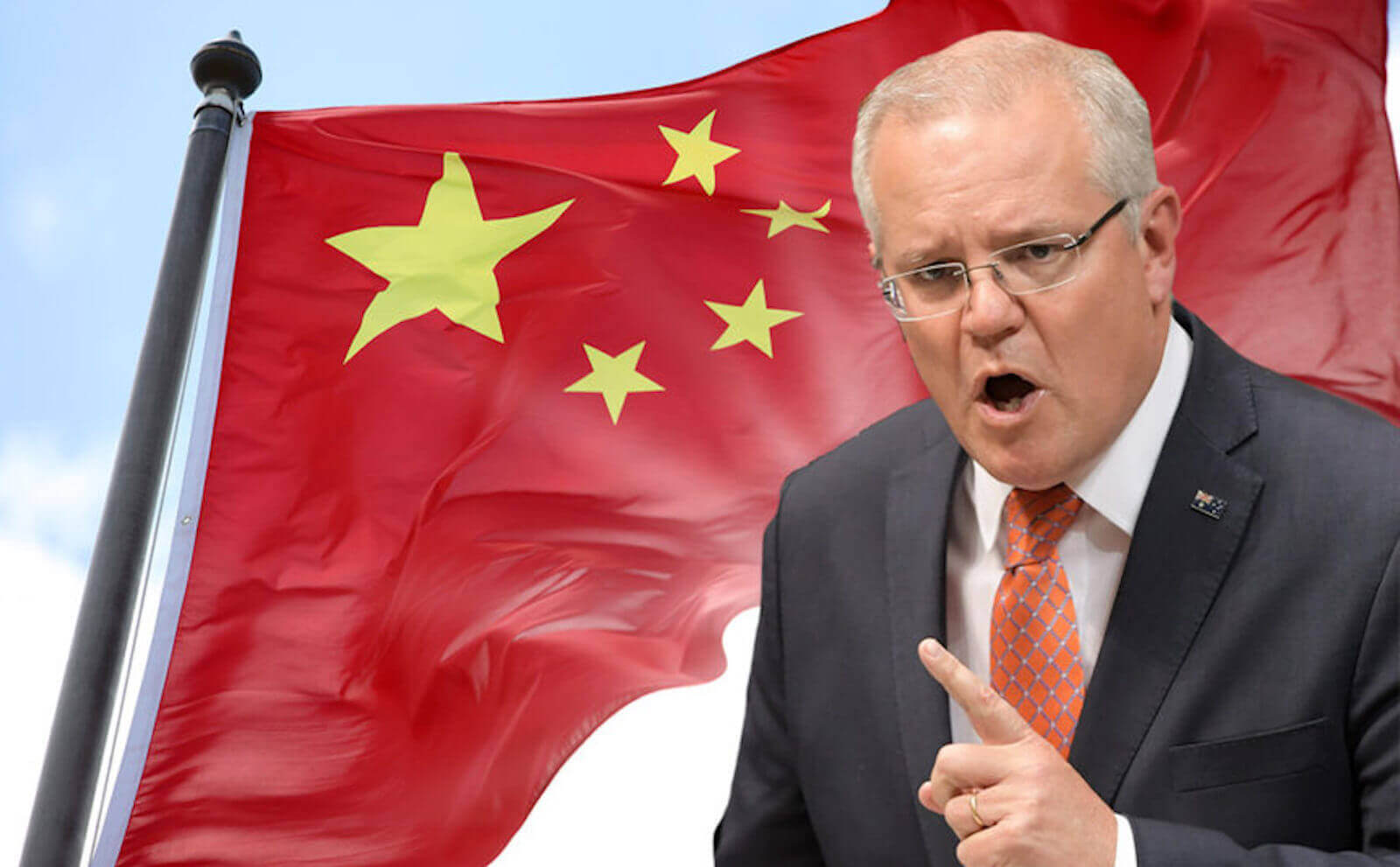Australian Prime Minister (PM) Scott Morrison on Wednesday expressed his desire to avoid a cold war with China, due to its aggressive actions across Indo-Pacific, under any circumstance.
In an interview with Sky News, the PM said, “We’re working hard to prevent that type of an outcome, and that is achieved by having as much engagement as possible. That is why you take the steps that we do take to ensure that you can get some stability in the region, a free and open Indo-Pacific, of which China is a part.” He stated that all the G7 plus leaders concurred with the need to avoid a cold war with China and agreed to promote engagement to resolve their differences.
China has responded harshly to all criticisms levelled against it at the G7 Plus, NATO, and the EU-US summits.
The statement comes against the backdrop of Morrison’s meeting with G7 leaders in Cornwall and his one-to-one with the leaders of France and Singapore. Morrison stated that Australia’s Western and Asian allies are aware of the threat across Indo-Pacific, leading to destabilising the region and China’s growing influence across the East and South China Seas.
China’s illegal occupation in the South China Sea, human rights abuses in Xinjiang and Tibet, a crackdown on pro-democracy protesters and new security legislation in Hong Kong and growing tensions across Taiwan Strait were among several issues discussed by Morrison with his counterparts during the tour. The G7 leaders pledged their support to Australia in confronting China and denounced acts of economic coercion by the Asian giant. While defending his meetings and alliances with the regional leaders, the PM said his engagements with the leaders represent a “step towards avoiding military conflict with Beijing.”
Ties between the two countries started deteriorating when Australia called for an independent probe into the origin of the coronavirus pandemic. As a retaliatory measure, China imposed sanctions on Australian exports, including copper, wine, beef, barley, timber, lobster, coal, dairy, sugar, wool, fruit and oatmeal. Additionally, China imposed anti-dumping duties on Australian wine and barley. In return, Australia abandoned Belt and Road Initiative (BRI) and also passed a new law that gave the federal government the authority to annul agreements between foreign institutions and state governments.
Also Read: China Suspends Strategic Economic Dialogue With Australia, Rejects its “Cold War mindset”
In April, Morrison announced investments worth billions in the defence sector to ramp up infrastructure and provide new training facilities for the Australian Defence Force (ADF). The decision came against the backdrop of escalated tensions and warning of a possible war with China.
Also Read: Australia Announces Defence Upgrade Amid Inflammatory Comments on Chinese Authoritarianism
On Defence Minister Peter Dutton’s remark on the growing conflict over Taiwan, China retaliated by warning Australia to stay away from “China’s internal matter” and suggested the authorities respect China’s “one nation” rule. China’s Foreign Ministry spokesperson, Zhao Lijian, threatened the Australian government with more severe trade sanctions and said, “The Australian government should heed these constructive opinions, face up to and reflect on the crux of the setback in bilateral relations, abandon the Cold War mentality and ideological bias”.
Before his departure to Cornwall, United Kingdom, for the G7 plus summit, Morrison in his speech at Perth USAsia Centre said, “We are facing heightened competition in the Indo-Pacific region. We need all nations to participate in the global system in ways that foster development and co-operation.”
Although Morrison suggested “working together to find a way of living together and not putting ourselves in the position where we're being told how to live,” both countries are yet to work on their frayed trade and diplomatic ties.
Australia-China Dispute Coverage:

